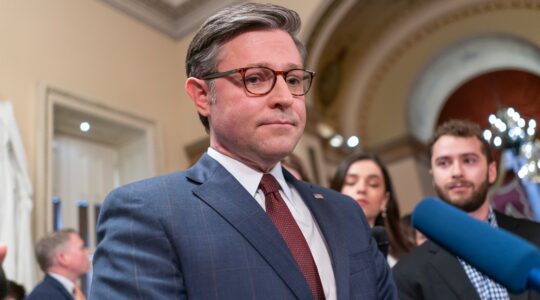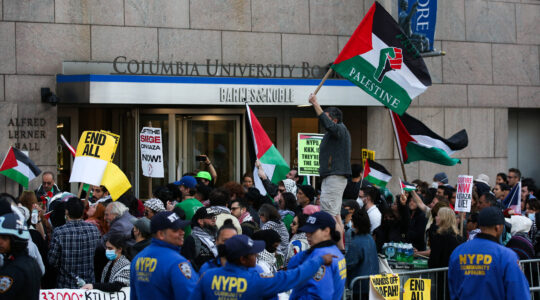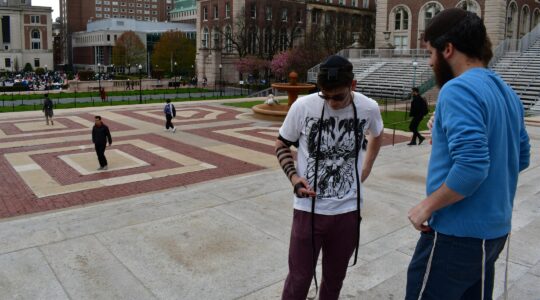NEW YORK (JTA) – With no end in sight in the race for the Democratic presidential nomination, attention has refocused on the role of party super delegates and the fight over whether, and how, to deal with disputed primaries in Florida and Michigan.
Hillary Clinton’s victory Tuesday in two key states, Ohio and Texas, virtually assures that neither she nor Barack Obama will win the 2,025 delegates necessary to secure the party’s nomination. That means the nomination will be determined by the so-called super delegates, some 800 current and former elected leaders and party officials free to cast their votes for whomever they choose.
Though precise numbers are impossible to determine, most estimates give Obama an edge of roughly 100 pledged delegates over Clinton, leading his campaign to argue that super delegates should not use their position to overturn the will of the voters.
Two of Clinton’s leading Jewish supporters, however, contend that super delegates exist for precisely this scenario and their prerogative to select the candidate they deem best qualified should not be eliminated.
Gov. Ed Rendell of Pennsylvania, the only remaining large state on the primary calendar, said on MSNBC Tuesday night that the race was a virtual tie and super delegates should not be obliged to support the candidate with a slight lead.
Steve Grossman, a major Clinton fundraiser from the Boston area, has reportedly said that super delegates should consider not just the popular will, but more importantly, which candidate has the best shot at winning major swing states in November.
Both Rendell and Grossman are former chairmen of the Democratic National Committee.
Their position would appear to put them potentially at odds with the current DNC chairman, Howard Dean, who has said that the party needs to avoid a floor fight at the convention this summer, a concern he reiterated this week in a meeting with Democratic leaders in Congress.
In a sign of the bare-knuckle fight to come, Politico revealed that a planned announcement that a bloc of super delegates would be supporting Obama was scuttled by Clinton after it became clear she was en route to a strong showing in Tuesday’s voting.
In Florida and Michigan, states which were stripped of their delegates for violating party rules, Clinton won by margins large enough to severely cut into Obama’s lead and, some observers say, undermine his claim that super delegates are obliged to support him.
Clinton’s supporters have repeatedly expressed confidence that the votes in those states will be counted, even though Obama’s name was not even on the ballot in Michigan. Both candidates agreed not to campaign in either state, but Clinton flew into Florida after the polls closed to claim victory.
“It’s counterproductive to our goal of electing a Democrat president to tell a million and a half voters that their votes didn’t matter,” U.S. Rep. Debbie Wasserman Schultz, a Florida Democrat and a co-chair of Clinton’s campaign, told JTA last month. “If they want to write off the biggest swing state in the general election, that really doesn’t make a whole lot of sense.”
Wasserman Schultz also dismissed the possibility of holding a repeat primary or caucus in Florida, an idea that was floated by some party leaders. Florida’s Republican governor, Charlie Crist, in an appearance Sunday on CNN, threw his support behind a repeat primary.
On the same program, Dean said he was open to the idea of a revote.
Wasserman Schultz has previously rejected the idea, saying, “There are no do-overs in elections.”
U.S. Rep. Robert Wexler (D-Fla.), an Obama supporter, could not be reached for comment.





